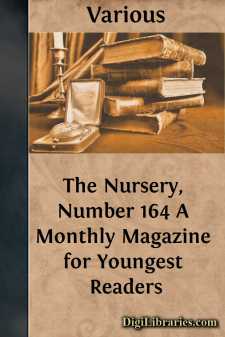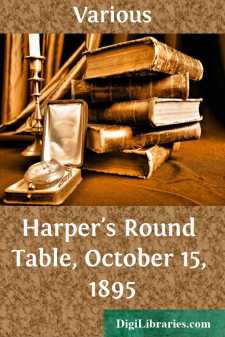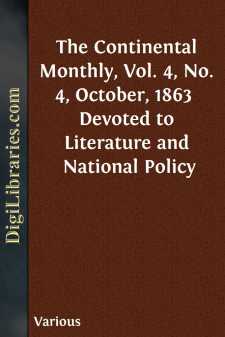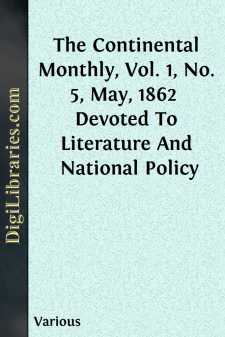Categories
- Antiques & Collectibles 13
- Architecture 36
- Art 48
- Bibles 22
- Biography & Autobiography 814
- Body, Mind & Spirit 145
- Business & Economics 28
- Children's Books 17
- Children's Fiction 14
- Computers 4
- Cooking 94
- Crafts & Hobbies 4
- Drama 346
- Education 56
- Family & Relationships 59
- Fiction 11833
- Foreign Language Study 3
- Games 19
- Gardening 17
- Health & Fitness 34
- History 1378
- House & Home 1
- Humor 147
- Juvenile Fiction 1873
- Juvenile Nonfiction 202
- Language Arts & Disciplines 89
- Law 16
- Literary Collections 686
- Literary Criticism 179
- Mathematics 13
- Medical 41
- Music 40
- Nature 179
- Non-Classifiable 1768
- Performing Arts 7
- Periodicals 1453
- Philosophy 66
- Photography 2
- Poetry 897
- Political Science 203
- Psychology 45
- Reference 154
- Religion 516
- Science 126
- Self-Help 85
- Social Science 82
- Sports & Recreation 34
- Study Aids 3
- Technology & Engineering 59
- Transportation 23
- Travel 463
- True Crime 29
Sort by:
by:
Various
VOCES POPULI. MORE POT-POURRI FROM THE PARK. SCENE—The Park, near Cumberland Gate, on almost any fine afternoon. Behind the rails separating the turf from the paths, Orators, Preachers, and Reciters are holding forth, for the delectation of small groups, who are mostly engaged in discussing some totally different subject. A set debate, with a time-limit, and a purely ornamental Chairman, is in...
more...
by:
Various
THE LITTLE TEACHER. I know of a little girl, who, like Mozart, shows a great talent for music, though she is not yet ten years old. Before she could walk, it seemed to be her delight to creep along the floor to the piano, draw herself up so as to touch the key-board, and then strike the different keys. Some of the sounds were pleasing to her, and from some she would start and draw back, as if she were...
more...
by:
Various
It was a bright and beautiful morning in June, 1927. The war between Venezuela and England had been in progress just three weeks, and every one was wondering why the big monarchy had not whipped the little republic off the face of the earth. But the resources of the South American country had been underestimated, and so had the immense difficulties which confronted England in her endeavor to carry on...
more...
by:
Various
BANKS, GEORGE LINNAEUS (1821-1881), British miscellaneous writer, was born at Birmingham on the 2nd of March 1821. After a brief experience in a variety of trades, he became at the age of seventeen a contributor to various newspapers, and subsequently a playwright, being the author of two plays, a couple of burlesques and several lyrics. Between 1848 and 1864 he edited in succession a variety of...
more...
by:
Various
THE FREEDOM OF THE PRESS. An important discussion has arisen since the commencement of the war, bearing upon the interests of the American Press. The Government has seen fit, at various times, through its authorities, civil and military, to suppress the circulation and even the publication of journals which, in its judgment, gave aid and comfort to the enemy, either by disloyal publications in...
more...
by:
Various
No. IX.—THE DUFFER DEER-STALKING. I am in favour of Mr. BRYCE's Access to Mountains Bill, and of Crofters who may be ambitious to cultivate the fertile slopes of all the Bens in Scotland. In fact, I am in favour of anything that will, or may, interfere with the tedious toil of Deer-stalking. Mr. BRYCE's Bill, I am afraid, will do no good. People want Access to Mountains when they cannot get...
more...
by:
Various
THE MYSTERY OF MR. E. DROOD: AN ADAPTATION. BY ORPHEUS C. KERR. CHAPTER XVI. AVUNCULAR DEVOTIO Having literally fallen asleep from his chair to the rug, J. BUMSTEAD, Esquire, was found to have reached such an extraordinary depth in slumber, that Mr. and Mrs. SMYTHE, his landlord and landlady, who were promptly called in by Mr. DIBBLE, had at first some fear that they should never be able to drag him...
more...
by:
Various
Coblenz is the place which many years ago gave me my first associations with the Rhine. From a neighboring town we often drove to Coblenz, and the wide, calm flow of the river, the low, massive bridge of boats and the commonplace outskirts of a busy city contributed to make up a very different picture from that of the poetic "castled" Rhine of German song and English ballad. The old town has,...
more...
by:
Various
TO THE FIRST BATHING-MACHINE. (After Wordsworth.) O blank new-comer! I have seen, I see thee with a start: So gentle looking a Machine, Infernal one thou art! When first the sun feels rather hot, Or even rather warm, From some dim, hibernating spot Rolls forth thy clumsy form. Perhaps thou babblest to the sea Of sunshine and of flowers; Thou bringest but a thought to me Of such bad quarter hours. I,...
more...
by:
Various
What Shall We Do With It? The first blood that was shed in our Revolutionary struggle, was in Boston, in March, 1770. The next at Lexington, in June, 1775. The interval was filled with acts of coercion and oppression on the one side and with complaints and remonstrances on the other. But the thought of Independence was entertained by very few of our people, even for some time after the affair at...
more...











